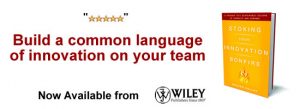Harley Stays Cool in the Heat
 Few brands were hit as hard by the recession as Harley-Davidson. Demand for motorcycles has taken a hit, and demand for premium motorcycles has taken an even bigger hit. It’s hard to sell a lot of twenty-some-thousand-dollar bikes when discretionary income is at a premium. Harley’s revenues continue to suffer, dipping 7.7 percent in the third quarter.
Few brands were hit as hard by the recession as Harley-Davidson. Demand for motorcycles has taken a hit, and demand for premium motorcycles has taken an even bigger hit. It’s hard to sell a lot of twenty-some-thousand-dollar bikes when discretionary income is at a premium. Harley’s revenues continue to suffer, dipping 7.7 percent in the third quarter.
Under these circumstances, the last thing you’d expect from Harley-Davidson is solid profitability, but the company’s profits more than tripled in the last quarter as management cut costs, laid off employees and closed plants. That, however, is only half the story. Beyond cutting back on its supply side—here’s where Harley departs from average brands—the company managed its demand side as well.
As the economy tightened up, Harley began requiring larger down payments from its credit customers. The company tightened up its lending standards, too, making it harder for the average Joe to afford one of its motorcycles. And it further refined its brand focus by abandoning its Buell line of motorcycles and selling off its MV Agusta brand.
Only a confident company with a powerful brand can make moves like that. I was reminded of that power a few days ago during a first-time visit to a new client. He was (to say the least) a Harley aficionado, his office decked out with brand paraphernalia. It was like being in an office at the local dealership; everywhere I turned I saw another Harley-Davidson logo—on the walls, on the chairs, on the trinkets on the bookshelves, you name it. It was not the typical office of a senior executive at a major corporation.
Alas, I can’t say I’m surprised. Harley-Davidson has done such a good job building brand equity over the years that, even in a downturn, the company can make a healthy profit. Rather than abandoning its principles to mount an ill-fated growth-at-any-cost effort, Harley management recognized its economic predicament and decided to protect both the brand and its profits. In fact, in some ways the stricter lending requirements add to Harley’s mystique. Scarcity, after all, creates value.
No company can control macroeconomic conditions, but every company can control how it responds to them. While other brands lost their nerve during the past couple of years, Harley-Davidson kept its cool. Literally.
Don’t miss an article (1,850+) – Subscribe to our RSS feed and join our Continuous Innovation group!
 Steve McKee is a BusinessWeek.com columnist, marketing consultant, and author of “When Growth Stalls: How it Happens, Why You’re Stuck, and What To Do About It.” Learn more about him at www.WhenGrowthStalls.com and at https://twitter.com/whengrowthstall.
Steve McKee is a BusinessWeek.com columnist, marketing consultant, and author of “When Growth Stalls: How it Happens, Why You’re Stuck, and What To Do About It.” Learn more about him at www.WhenGrowthStalls.com and at https://twitter.com/whengrowthstall.
NEVER MISS ANOTHER NEWSLETTER!
LATEST BLOGS
Starbucks and Big Tobacco
Back in the 1950’s smoking was glamorous, and just about everybody who was anybody smoked cigarettes. Then came the discovery, to the shock of millions, that sucking smoke into your lungs might not be good for you. Then came another revelation that one of the substances in tobacco, nicotine, which was used as a poison by the Egyptians during the times of the Great Pyramids, is addictive. People then began a mass exodus from the consumption of nicotine via inhaled smoke.
Read MoreWal-Mart Goes Green – What about your company?
With the price of gas above $3.00, some companies (and hopefully all) are beginning to look at the fuel efficiency of their fleets. Wal-Mart is the most public example of this with its trucking fleet. Its efforts include:
Read More


